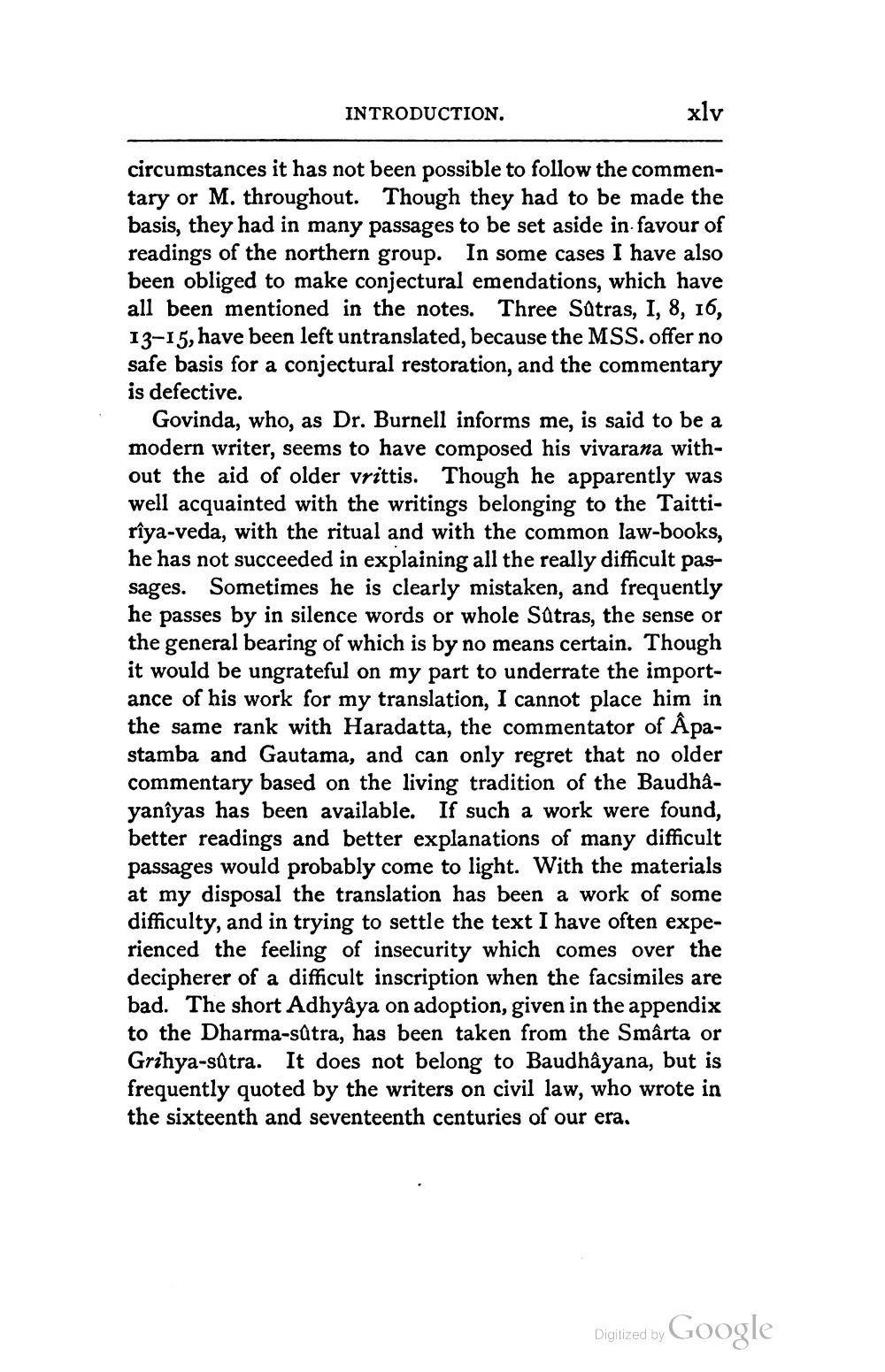________________
INTRODUCTION.
xlv
circumstances it has not been possible to follow the commentary or M. throughout. Though they had to be made the basis, they had in many passages to be set aside in favour of readings of the northern group. In some cases I have also been obliged to make conjectural emendations, which have all been mentioned in the notes. Three Satras, I, 8, 16, 13-15, have been left untranslated, because the MSS. offer no safe basis for a conjectural restoration, and the commentary is defective.
Govinda, who, as Dr. Burnell informs me, is said to be a modern writer, seems to have composed his vivarana without the aid of older vrittis. Though he apparently was well acquainted with the writings belonging to the Taittiriya-veda, with the ritual and with the common law-books, he has not succeeded in explaining all the really difficult passages. Sometimes he is clearly mistaken, and frequently he passes by in silence words or whole Satras, the sense or the general bearing of which is by no means certain. Though it would be ungrateful on my part to underrate the importance of his work for my translation, I cannot place him in the same rank with Haradatta, the commentator of Âpastamba and Gautama, and can only regret that no older commentary based on the living tradition of the Baudhayanîyas has been available. If such a work were found, better readings and better explanations of many difficult passages would probably come to light. With the materials at my disposal the translation has been a work of some difficulty, and in trying to settle the text I have often experienced the feeling of insecurity which comes over the decipherer of a difficult inscription when the facsimiles are bad. The short Adhyâya on adoption, given in the appendix to the Dharma-sâtra, has been taken from the Smarta or Grihya-sútra. It does not belong to Baudhầyana, but is frequently quoted by the writers on civil law, who wrote in the sixteenth and seventeenth centuries of our era.
Digitized by Google




